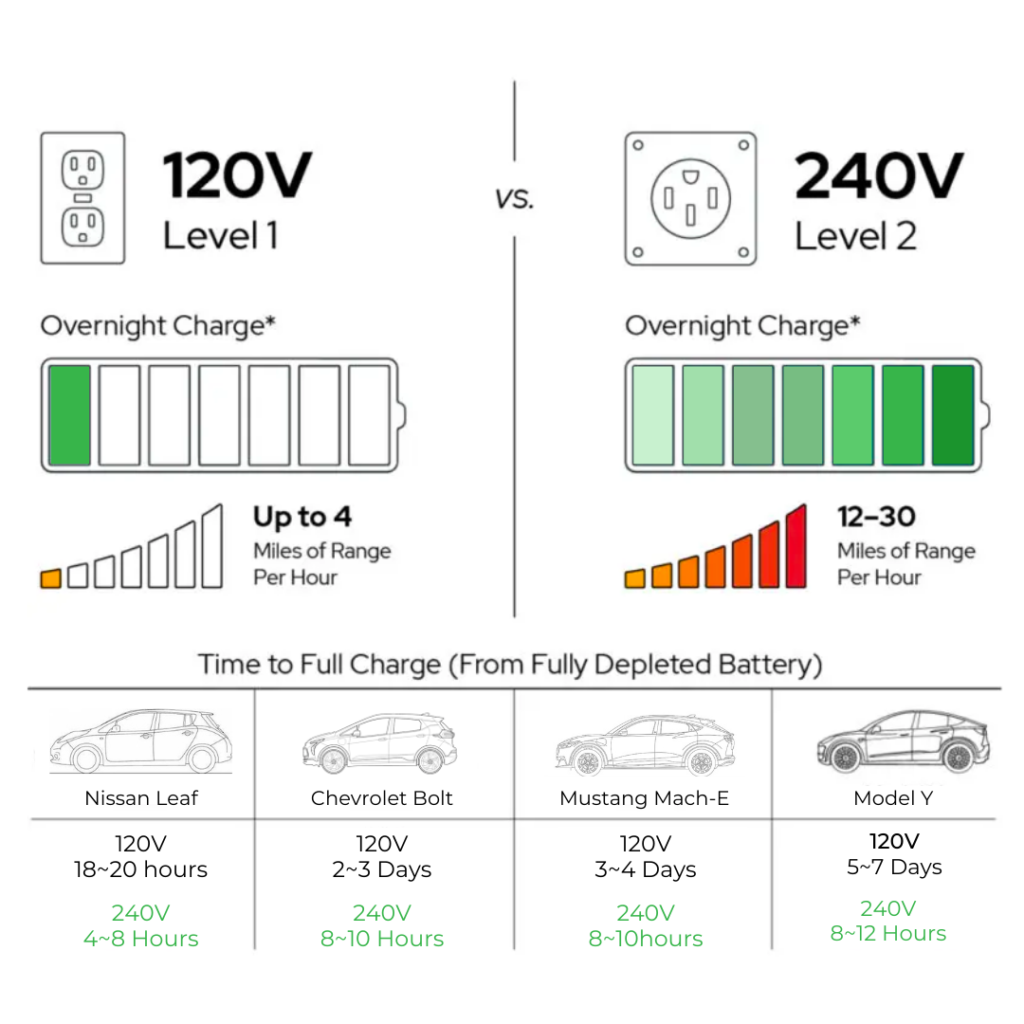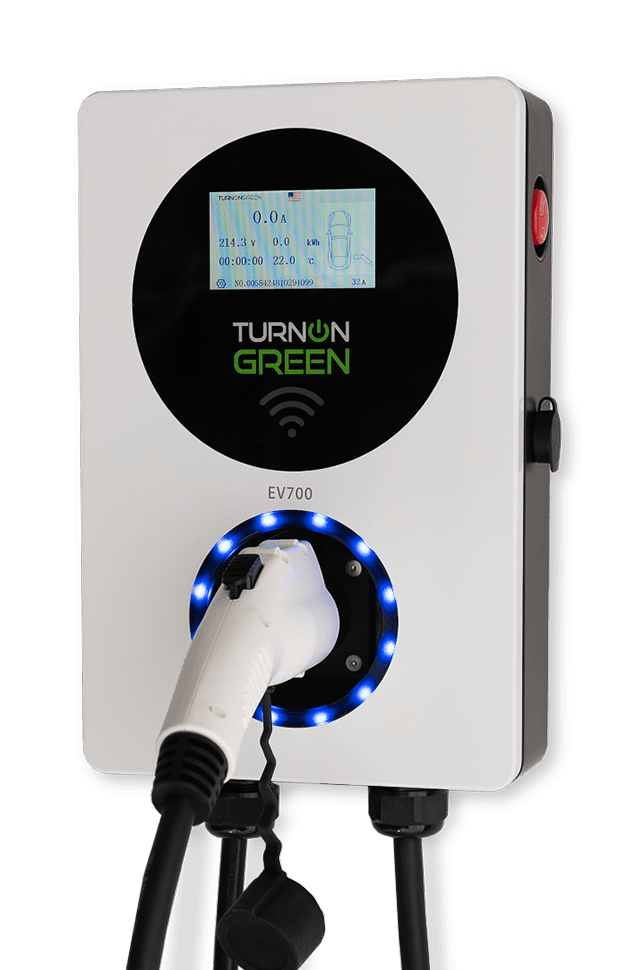How do EV batteries work?
Similar to mobile phones, electric vehicles use lithium-ion batteries. Lithium-ion batteries are rechargeable with a power supply connection, which allows it to replenish its power. Once an EVs battery has charged, it uses the energy to power the EV motor and wheels.
EV Battery Lifespan

Electric vehicle batteries tend to have a warranty of 8 years, and some EV batteries can last up to 10 years before a replacement is necessary.
EV batteries degrade through charging cycles over time, and there is plenty you can do to protect your battery’s life span.

Protecting your EV's battery
Prevent Overcharging
Never let your battery go down to 100% completely, and try not to charge over 80% on a regular basis.
Overnight Charging
Fast charging is not always the best solution. If possible, charging overnight with a 7kW EV charger can protect your battery.
Mindful Acceleration
Practice smooth acceleration after a stop. Taking off after a stop too quickly and harshly makes an impact on your battery’s lifespan.

EV battery (lithium-ion) capacity is measured in kWh. Most EVs have a 40kWh capacity, but 100kWh is on the way. Battery kWh is related directly to EV range.
The higher the kWh of an EV the more miles you get on a full battery. For example, if an EV has a 40kWh battery it can travel 168 miles when charged completely.

Battery Range & Capacity
What is Level 1,2,3 charging
Level 1 Charging
Level 1 charging utilizes a regular household 120 volt (V) outlet. This provides around 4 miles of range per hour of charging.
Level 2 Charging
Level 2 charging utilizes a 240V outlet, such as one used by an electric dryer. This level of charging provides around 25 miles of range per hour.
Level 3/DC Fast Charging
Level 3 charging, DC Fast Charging, is by far the fastest and can charge an EV from 10% to 80% in just 30 minutes or less. DC Fast Charging can only be found exclusively at public charging stations whereas level 1 and level 2 charging can be utilized at home.

Benefit of Switching to EVs
Save on fuel costs
Never let your battery go down to 100% completely, and try not to charge over 80% on a regular basis.
Easier maintenance
Fast charging is not always the best solution. If possible, charging overnight with a 7kW EV charger can protect your battery.
Reduce carbon footprint
Practice smooth acceleration after a stop. Taking off after a stop too quickly and harshly makes an impact on your battery’s lifespan.
Tax benefits
Practice smooth acceleration after a stop. Taking off after a stop too quickly and harshly makes an impact on your battery’s lifespan.

EV700 | Home EV Charger
An EV charger for your home is the best way to keep your car charged while protecting the battery long-term.
TurnOnGreen EV700 is easy to install, user-friendly, feature-rich, and can be configured to charge even slower overnight.
Frequently Asked Questions
Plug-in hybrid electric vehicles are powered by both conventional fuels as well as electric power stored in a battery. All-electric vehicles use a battery to store the electrical energy that is the sole source of power to the motor. EVs provide a more economical, “greener”, sustainable solution for drivers today.
Electric vehicles require less maintenance as they have roughly one-quarter of the moving parts of a conventional vehicle. For example, EVs do not require air cleaners, oil filters, spark plugs, engine oil, fan belts, radiators, fuel filters, and various other components of gas-powered vehicles. With EVs, the battery is the most critical component and requires little to no maintenance.
Vehicle range can vary depending on battery capacity, ambient temperature, and driver habits. Typical EVs can travel between 100 – 300 miles on a single charge, more than enough distance for most daily commutes.
Many EVs from larger manufacturers are coming to market with 8-year warranties. Manufacturers fully expect that the batteries will serve the vehicle well past the warranty period; however, slight degradation will eventually occur, thus shortening the vehicle’s range.
The cost of charging an EV is significantly less expensive than the equivalent cost of gasoline. For example, A conventional vehicle getting 27.5 mpg and traveling 600 miles per month will cost the owner about $800 a year (assuming gasoline at $3.00/gallon). However, a customer would expect to pay between $60 to $160 (dependent on the rate plan) in electric costs for the same distance.
EVs come equipped with cords and equipment that allow them to be plugged into conventional 120-volt outlets that are standard in your home or garage. However, EV owners can also purchase advanced, Level 2 chargers (240-volt) that will cut charging time in half. When considering home charging options, please consult with a licensed electrician as modifications to your home’s electrical wiring will likely be needed. EVs can also be charged at public stations currently being installed across the country, For more information visit Public Charging Stations.
Most homes can install EV charger. You’ll need a qualified electrician to wire things up, and some locales require permits and inspections. An exception is if your garage already has a dedicated 240-volt plug receptacle of the proper type installed. That would allow you to buy a plug-in EVSE, hang it on the wall, and plug it in yourself.
The first step is to have a licensed electrician perform an assessment at your home. They will be able to identify the scope of work needed to accommodate the charging equipment. In extreme cases, an electric service upgrade to your home may be required. In that case, your utility company may have to perform the work required to supply the additional electric load. Your licensed electrician should be able to identify this problem and can work with the utility company to provide the service upgrade needed.
As an electric vehicle driver, it’s useful to know how many miles of range you are getting during the time your vehicle is charging so you know you can get to your next destination.
Plug-in models are more easily portable if you move, but they are usually limited to indoor use since they aren’t as well protected from the elements.
Hard-wired wall units are generally more expensive to install, and obviously more permanent, but they can typically carry more current (for faster charging) and are more suitable for outdoor charging if that’s the type of situation you have at home.
To estimate what your costs will be, reference your latest utility bill to see how many kilowatt-hours(kWh) you currently use and how much you pay per kWh. The national average price of electricity as of November 2021 is $.13 per kWh. If your EV’s battery is sized at 250 kWh, you drive 1,000 miles per month, and you are paying $.13 per kWh, charging your EV will cost you $34.25 a month. In areas where average kWh is $.22/kWh, monthly costs of charging can be as high as $60.00.
If you drive more than 20 miles per day, and you don’t have charging access elsewhere, you should consider getting a level 2 EV charger at home.
Not exactly. You may find a charging station with the features you want but a higher capacity than you need. If the rated power of your charging station exceeds 80 percent of the capacity of your circuit, make sure that you are buying one that can limit the charging current.
Yes. A Level 2 charging station requires a dedicated 240-volt circuit and 50Amp circuit breaker.
Want help from a rebate expert?
TurnOnGreen Rebate Experts can help guide you through any utility and government rebate programs. Learn more »
